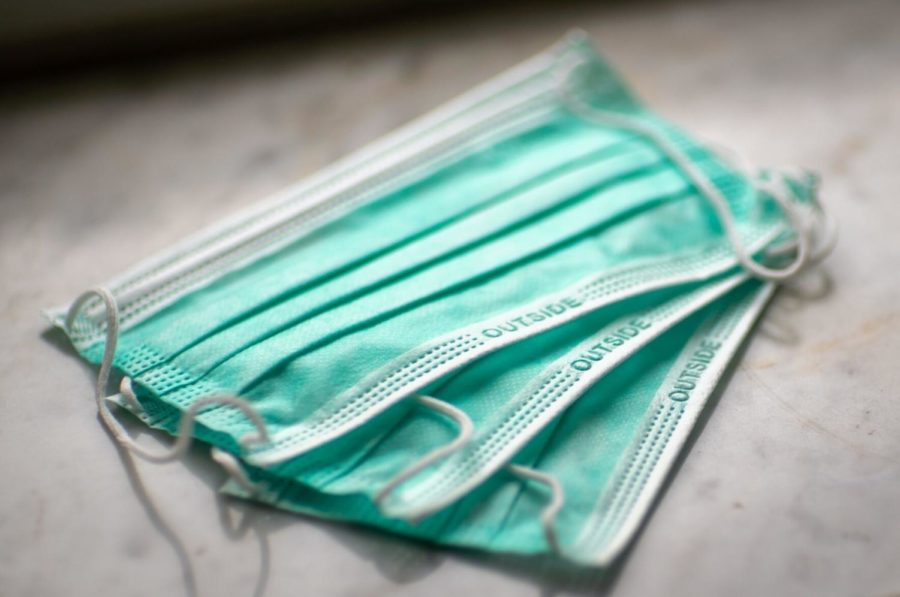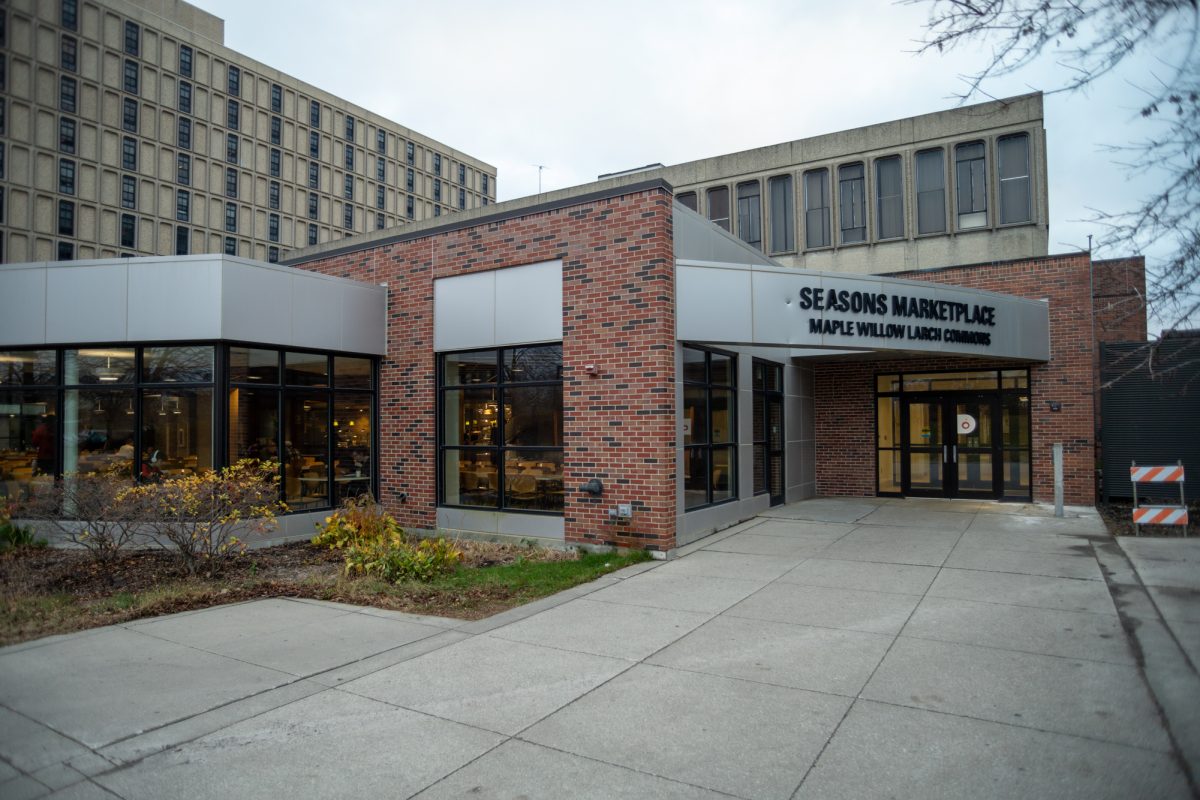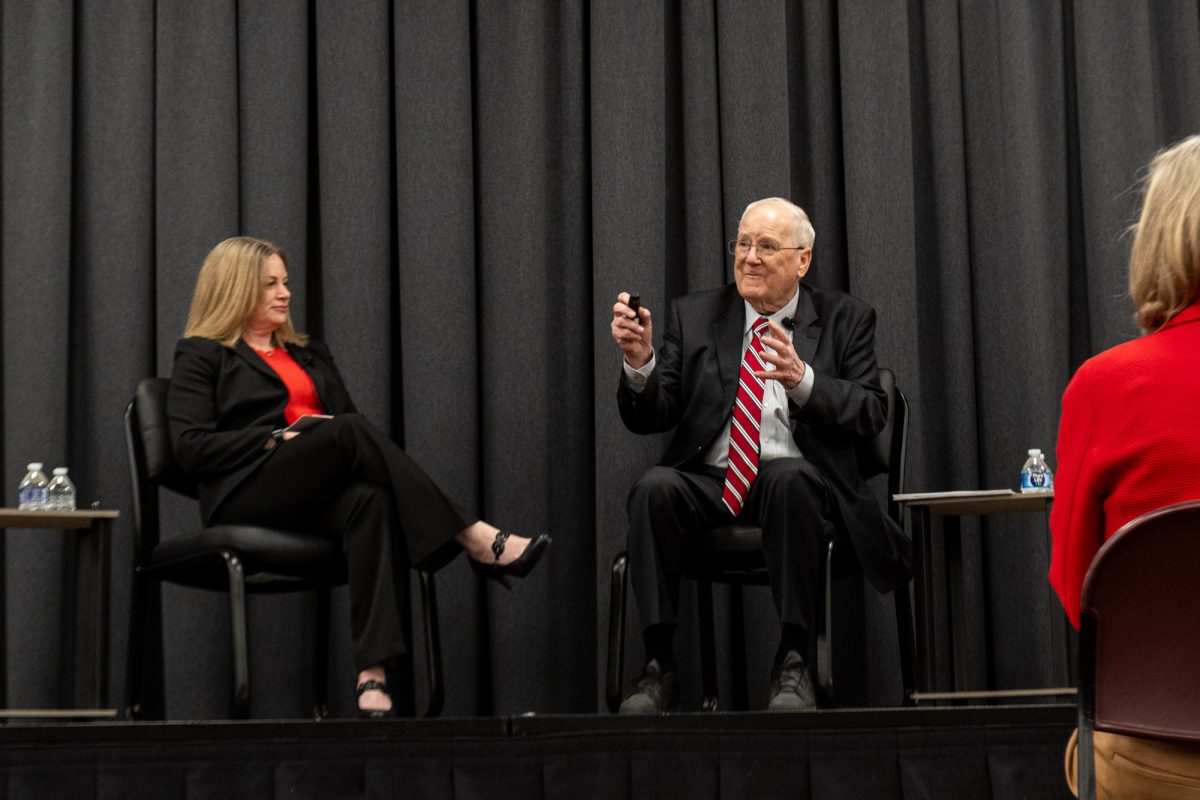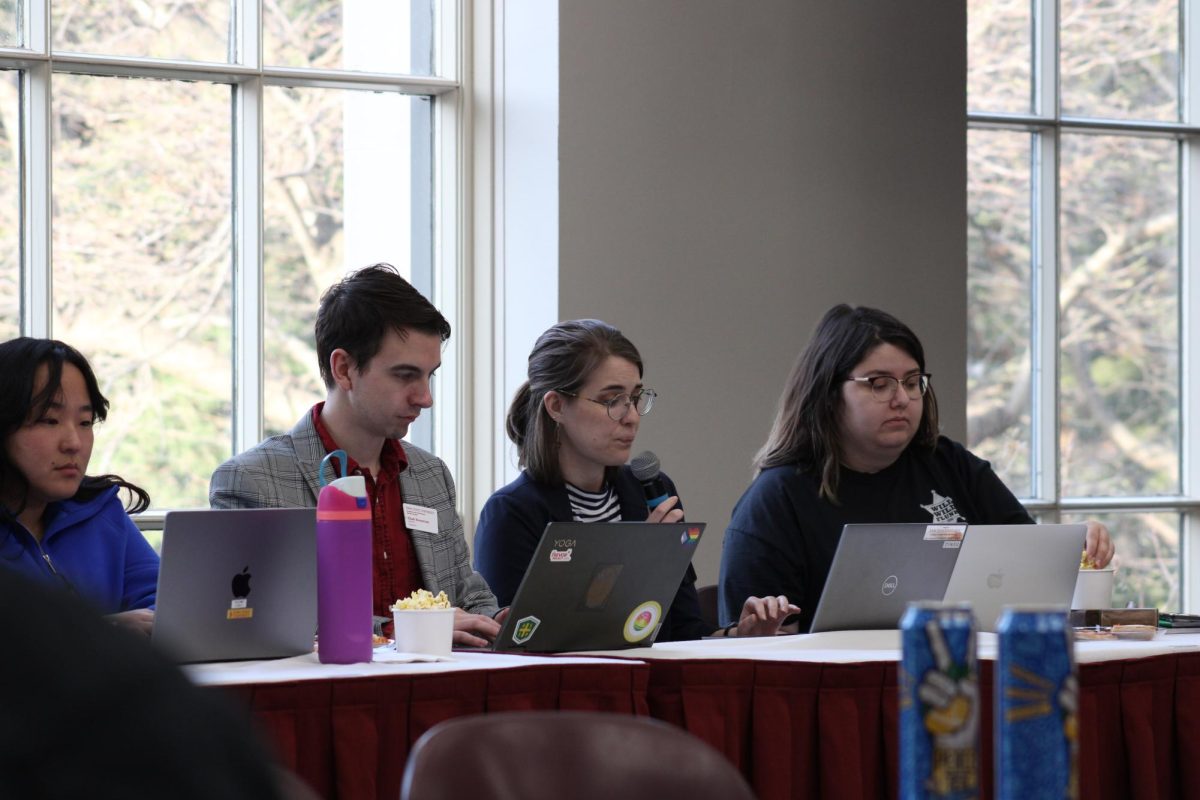Iowa State looks toward spring COVID-19 management
Iowa State Vice President of Extension and Outreach John Lawrence and COVID-19 Public Health Coordinator Dr. Kristen Obbink explain what COVID-19 mitigation strategies will look like this semester.
January 28, 2021
Iowa State is planning to retain precautions to keep COVID-19 numbers at bay during the spring semester.
John Lawrence, Iowa State’s vice president of extension and outreach, and Dr. Kristen Obbink, Iowa State’s COVID-19 public health coordinator, spoke on Iowa State’s plans for the upcoming semester.
Changes include an altered testing strategy from the fall semester.
New students moving into university residences were required to provide proof of a negative COVID-19 test that was less than 72 hours old or to provide proof of a positive COVID-19 test in the last 90 days. Returning students were not required to provide a test.
A random sample of 5,000 students was also selected for asymptomatic testing based on zip code.
“That sample was weighted on the positivity percentages in the home zip code of where students were coming from, and so students coming from areas that had higher rates of infection were more likely to be included in that sample,” Obbink said.
This asymptomatic testing will continue into early next week, but asymptomatic testing from that point on will be judged based on infection rates around Iowa State.
“We will closely continue to watch the data this semester, just as we did last semester,” Obbink said. “If we see a need to do some more random testing, we will always have that option as well.”
Lawrence said they look for patterns in the data to determine the need for asymptomatic testing.
“We watch the numbers daily, and if we start to see recurrence in a particular area that’s causing some concern, we have the ability to go in and do some additional asymptomatic testing to try to identify those who may or may have it and not realize it,” he said.
Obbkink also added they have had a good response and turnout with students showing up for their test.
Lawrence said test results are still a rapid turnaround.
“[The Veterinary Diagnostic Lab] is still getting our results in less than 24 hours,” he said. “We do our own contact tracing and case management. I think that’s been one of our successes as you compare to kind of the general public. You’ll hear stories about, ‘Well, I had to wait two days to get a spot to test, and maybe a couple of days to get a result back and then somebody started to do contact tracing,’ and by that time, they’ve already had a lot of contact with people.”
Overall, Obbink and Lawrence said Iowa State showed that COVID-19 numbers can be controlled.
“We saw that surge in cases after the Halloween holiday in early November,” Obbink said. “But I think while that was certainly a challenge just as the beginning of the semester was, we demonstrated both of those times that when we come together and we do follow the mitigation strategies and the Cyclones Care behaviors, we can bring our numbers back down.”
Iowa State recorded two spikes in positive COVID-19 cases — one when students first moved back to campus and participated in “801 day” and one as a result of “Halloweekend,” or Halloween weekend.
Obbink also said part of the strategy going forward into this semester is to look toward events or holidays that could cause a spike in COVID-19 cases.
“Continuing on with that this semester is a goal, taking what we learned from last semester and knowing to be a bit more proactive about when we may see some raises in cases,” she said. “So looking ahead to St. Patrick’s Day, like some of these things we really might see a surge in cases. How can we, through communication and other efforts, try to be proactive about keeping those surges from happening?”
Obbink also said that the fall semester prepared them to have an appropriate response to this potential rise in cases if necessary.
“Even like the Super Bowl, if there’s watch parties,” Lawrence said. “Coming up, you know, are people cautious about that? If they feel they were exposed, get in and get tested quickly. Stay home if you’re sick, those types of things.”
As for vaccines, Obbink said Iowa State is an approved vaccine distributor, meaning the university is legally authorized to give out vaccines and was able to vaccinate some staff and other individuals who fell into the Phase 1A category as outlined by the Iowa Department of Public Health.
“Right now, of course, the biggest challenge is just a lack of vaccines,” she said. “So there’s so many unknowns around — how much vaccine you’re going to get and when.”
Obbink said there is a team ready to vaccinate individuals at Iowa State but that if you are able, you should get the vaccine elsewhere.
“Certainly, we have people ready and willing, but we are encouraging faculty, staff and students, certainly knowing that the state by state and county by county varies a lot, if you’re able to get the vaccine elsewhere, we highly recommend that you do. But we certainly do have a team of people here in place who are preparing as well,” she said.
“There is a light at the end of the tunnel, but we need to be vigilant,” Lawrence said. “The vaccine is still a ways off. We have proven in the fall with the masks, the distancing, staying home if you’re sick. I think we just need to stay vigilant and stay with the Cyclone Cares campaign, and when it’s appropriate to get vaccinated, there will be opportunities to do so. Then I encourage students to to join in.”
Students, faculty and staff can make an appointment to get tested online or by calling (515) 294-5801 and selecting option nine.
Next week, Iowa State will update the COVID-19 dashboard to reflect the results from the first week of spring semester. Fall semester results will be archived and will still be available to view.






